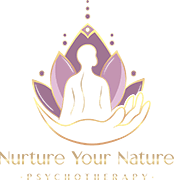Introduction: Why Boundaries Matter in Our Brooklyn Lives
Boundaries are the invisible lines that safeguard our emotional, physical, and psychological well-being. For many New Yorkers—especially those seeking Brooklyn Psychotherapy—the term “boundaries” has become a buzzword in self-help circles. Yet there’s a darker edge to the concept: toxic boundary setting. When limits become rigid walls or weapons, relationships fracture, isolation expands, and genuine growth stalls. This guide demystifies toxic boundaries, offers practical strategies for healthier limits, and invites you to partner with Nurture Your Nature Psychotherapy, your trusted Brooklyn Therapist for both in-person and Online Therapy Brooklyn sessions.
Boundary Basics: From Flexible Fences to Iron Gates
Before unpacking toxic boundaries, it’s crucial to define healthy ones. A healthy boundary:
-
Respects your autonomy while honoring the dignity of others.
-
Adjusts to context—looser with trusted friends, firmer with casual acquaintances.
-
Communicates clearly and consistently.
In contrast, toxic boundaries:
-
Erect impenetrable walls or, paradoxically, erase limits entirely.
-
Are motivated by fear, resentment, or control.
-
Ignore the needs and perspectives of others—or your own.
Brooklyn Therapy clients often arrive with “boundary confusion,” unsure whether they’re too porous or too guarded. Sorting this out is step one.
The Psychology of Toxic Boundary Setting
Toxic boundary patterns rarely arise overnight. They often stem from:
-
Family-of-origin dynamics. For example, children taught to “never talk back” may become adults who can’t say no—then overcorrect with brittle defenses.
-
Trauma histories. Survivors may barricade themselves emotionally, viewing vulnerability as danger.
-
Cultural narratives. Hustle culture in places like Brooklyn equates overwork with worthiness, making it difficult to protect personal time.
-
Attachment styles. Anxious attachers may have no boundaries at all, while avoidant attachers maintain extreme distance.
Understanding these roots allows a Brooklyn Psychotherapy clinician to tailor interventions that address underlying causes rather than surface behaviors.
Spotting Toxic Boundaries in Action
Watch for these red flags:
| Toxic Boundary Behaviors | How They Manifest |
|---|---|
| All-or-nothing rules | “If my partner forgets date night once, we’re done.” |
| Silent treatment | Refusing to communicate, forcing others to “earn” your presence. |
| Ultimatums masquerading as limits | “Agree with me or I walk away.” |
| Micromanaging loved ones | Controlling schedules, friendships, or finances. |
| Inflexible self-care | Declining every invitation because it conflicts with a rigid routine. |
When clients at Nurture Your Nature Psychotherapy describe such patterns, our role as a Brooklyn Therapist is to reframe boundaries as living guidelines, not unbreakable commandments.
The Hidden Costs of Toxic Boundaries
Relationship Fallout
Excessive rigidity thwarts intimacy. Friends may feel shut out; partners feel distrusted. Conversely, nonexistent boundaries invite codependence, fostering resentment and burnout.
Mental-Health Consequences
Research links toxic boundaries to heightened anxiety, depression, and emotional dysregulation. Your nervous system remains on constant alert—either defending the fortress or scrambling to meet everyone’s demands.
Professional Roadblocks
In Brooklyn’s competitive marketplace, refusing feedback or collaboration can stall careers, while inability to decline extra tasks leads to chronic stress.
Distinguishing Self-Protection from Self-Sabotage
Healthy boundaries protect; toxic ones isolate. Ask yourself:
-
Intention. Is my limit rooted in self-care or retaliation?
-
Flexibility. Can I adjust if circumstances change?
-
Mutuality. Does this boundary account for both my needs and others’?
If the answer is no, consider recalibrating. Online Therapy Brooklyn offers a confidential space to explore these questions.
How to Shift from Toxic to Healthy Boundary Setting
Cultivate Self-Awareness
Use journaling or mindfulness to notice body sensations when you say “yes” or “no.” Tension may signal over-accommodation; numbness might indicate disconnection.
Practice Graduated Assertiveness
Start small: politely decline a low-stakes offer. Over time your nervous system learns that boundary setting doesn’t equal abandonment.
Replace Ultimatums with Requests
Transform “If you don’t come, we’re over” into “I value spending time together; can we choose a day that works for both of us?”
Adopt the 24-Hour Rule
Delay major boundary decisions for a full day to assess motives calmly instead of reacting impulsively.
Seek Brooklyn Psychotherapy Support
A trained clinician can role-play conversations, teach nervous-system regulation, and hold you accountable for balanced boundaries.
Therapeutic Approaches We Use at Nurture Your Nature Psychotherapy
-
Dialectical Behavior Therapy (DBT). Teaches distress tolerance and interpersonal effectiveness—vital for flexible boundary work.
-
Schema Therapy. Identifies entrenched beliefs (e.g., “I must be in control”) that fuel toxicity.
-
Polyvagal-informed interventions. Help you track physiological cues and exit fight-flight-freeze states.
-
Collaborative Couples Therapy. Guides partners in expressing needs without stonewalling or enmeshment.
Whether you prefer in-office sessions in Downtown Brooklyn or Online Therapy Brooklyn, we tailor the modality to your lifestyle.
Cultural Considerations: Boundaries in a Diverse Borough
Brooklyn’s mosaic of cultures—Caribbean, Hasidic Jewish, African American, Latinx, and more—shapes boundary norms. What feels “toxic” in one context might be customary in another. For instance, collectivist families may prize closeness that individualistic cultures label “enmeshed.” Brooklyn Therapy thus explores cultural humility: we respect heritage while disentangling harmful patterns.
Case Vignettes (Anonymized)
The Over-Giver
Maria, a freelance designer in Williamsburg, couldn’t refuse clients. Her 16-hour workdays torpedoed sleep and romance. Together we mapped her people-pleasing schema, rehearsed polite “no” scripts, and introduced a three-client-per-day cap. Maria now maintains income without burnout.
The Fortress Builder
Andre, raised in a chaotic Brownsville household, set ironclad rules: no sleepovers, no borrowing items, no challenging his opinions. Friends drifted away. In therapy we practiced vulnerability exercises. Gradually Andre allowed trusted friends deeper access, improving connection while still honoring safety.
Practical Exercises to Try This Week
-
Boundary Audit. List current rules and categorize: healthy, flexible, or toxic. Revise one toxic rule into a healthier statement.
-
Body Scan for Consent. When invited to an event, pause, breathe, and scan your body. Accept only if your chest and stomach feel expansive rather than tight.
-
“I-Statement” Rehearsal. In the mirror, practice: “I feel ___ when ___ happens. I need ___.”
-
Digital Detox Hour. Set a nightly phone-free hour. Observe any impulses to over-share or withdraw completely.
-
Safe Person Check-In. Share one boundary you’re working on with a supportive friend, asking them to gently hold you accountable.
Frequently Asked Questions
Isn’t any strong boundary inherently healthy?
No. Strength without flexibility becomes rigidity. A healthy boundary balances firmness with compassion.
How do I handle guilt after setting a limit?
Normalizing guilt is key. Emotions are data, not directives. Discuss the guilt in Brooklyn Therapy to reframe it as evidence of growth.
Can toxic boundaries be culturally appropriate?
Context matters. Yet even culturally endorsed behaviors can harm individuals. Therapy helps evaluate which traditions serve you and which stifle you.
What if others accuse me of being “selfish”?
Differentiate between selfishness and self-respect. A boundary that upholds mutual dignity is not selfish—even if others dislike it.
The Role of Online Therapy in Boundary Work
Modern city life can make in-person sessions challenging. Our Online Therapy Brooklyn option offers:
-
Accessibility. Attend sessions from home, office, or during travel.
-
Continuity. Maintain progress even when schedules fluctuate.
-
Privacy. Enjoy HIPAA-compliant video platforms.
Teletherapy outcomes for boundary issues rival in-office success, making it a viable path for busy professionals and parents alike.
When to Seek Professional Help Immediately
-
You feel chronically resentful or isolated.
-
Boundaries spark frequent conflicts at work or home.
-
Physical symptoms—insomnia, gastrointestinal distress—accompany boundary stress.
-
You vacillate between extreme withdrawal and over-availability.
These signs indicate that self-help tools may not suffice; professional guidance from a Brooklyn Therapist can accelerate healing.
How Nurture Your Nature Psychotherapy Can Help You Today
Located in the heart of Brooklyn and offering comprehensive virtual care, Nurture Your Nature Psychotherapy specializes in transforming toxic boundaries into healthy, growth-oriented limits. Our clinicians provide:
-
Individual therapy focused on self-concept and assertiveness.
-
Couples counseling that replaces ultimatums with collaborative problem-solving.
-
Group workshops on effective communication and boundary setting.
We believe everyone deserves relationships rooted in respect and authenticity. Let us guide you toward that reality.
Conclusion: From Barbed Wire to Bridges
Toxic boundary setting can masquerade as strength, independence, or “self-care.” Yet behind the façade lurks disconnection and emotional fatigue. By recognizing unhealthy patterns, honoring cultural nuance, and seeking support through Brooklyn Psychotherapy—whether in person or via Online Therapy Brooklyn—you can rewrite your relational story. Nurture Your Nature Psychotherapy is here to walk beside you, transforming boundaries from barriers into bridges.
Your journey toward balanced living starts with a single step. Reach out today to schedule a consultation with a compassionate, experienced Brooklyn Therapist. Together we’ll nurture your nature—one healthy boundary at a time.
Ready to take the first step? Reach out today and Schedule your Appointment Online Now or Call Us at (646) 470-4174 to get started Today!














